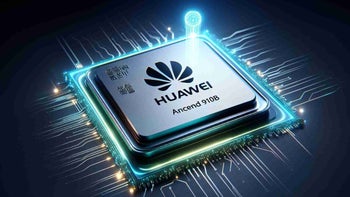T-Mobile may be left behind as AT&T builds its internet kingdom

T-Mobile might be the dominant player in the Fixed Wireless Access (FWA) market, but it doesn't have an organic fiber network. Fiber internet is superior to FWA in terms of speed, which explains why T-Mobilewants to buy fiber companies Metronet and Lumos. AT&T, on the other hand, operates America's largest fiber network and is poised to increase its footprint with an acquisition. This represents a missed opportunity for T-Mobile.
T-Mobile offers fiber services through partnerships with fiber-optic network owners and its planned acquisitions could help it reach 15 million households.
Bloomberg recently reported that AT&T was interested in purchasing Lumen Technologies consumer fiber operations for more than $5.5 billion. Bundling wireless and fiber services, which is known as convergence, helps companies retain customers - or lower churn - and gives them more pricing leverage.
AT&T and Verizon are said to be building kingdoms of fiber: areas of the US where they provide both wireline and wireless connections. This has huge payoffs, including an increase in mobile market share in markets where both services are provided, and, as mentioned before, lower churn, which increases the customer lifetime value (CLV), or the total revenue a business earns from a customer over the time they stay with them.
Fiber deployment is expensive, but given that it lowers churn and increases CLV, the investment easily pays for itself.
If everything goes to plan, AT&T could eventually own a kingdom with 55 million homes, far outpacing Verizon's expected 40 million fiber homes and T-Mobile's 15 million fiber locations.
AT&T's Lumen deal is nothing more than a rumor for now and there is a possibility that T-Mobile and Verizon will try to outbid the company.
And then, there's the question of whether there is any real benefit to bundling wireless and wireline services. T-Mobile's CEO Mike Sievert previously said the company also enjoys lower churn where its rivals have fiber.
Besides, an increasing number of customers is becoming fond of FWA services, so it may not be time for T-Mobile to panic just yet.
However, "if convergence is real," not making a play for Lumen could put T-Mobile far behind. The company may catapult itself to a leadership position by purchasing Charter, but Charter's network is based on the inferior hybrid fiber-coaxial (HFC) tech that is slower and less capable than fiber. That said, Charter has more than 30 million customers, so T-Mobile will benefit greatly by acquiring it.
Bloomberg recently reported that AT&T was interested in purchasing Lumen Technologies consumer fiber operations for more than $5.5 billion. Bundling wireless and fiber services, which is known as convergence, helps companies retain customers - or lower churn - and gives them more pricing leverage.
TD Cowen analysts believe that AT&T's rumored purchase of Lumen could have serious implications for rivals such as T-Mobile. Considering T-Mobile is behind AT&T, it might have made more sense for T-Mobile to acquire Lumen.
AT&T and Verizon are said to be building kingdoms of fiber: areas of the US where they provide both wireline and wireless connections. This has huge payoffs, including an increase in mobile market share in markets where both services are provided, and, as mentioned before, lower churn, which increases the customer lifetime value (CLV), or the total revenue a business earns from a customer over the time they stay with them.
Fiber deployment is expensive, but given that it lowers churn and increases CLV, the investment easily pays for itself.
AT&T and Verizon have touted benefits such as a 400+ pt phone share gain within converged markets, and Verizon noting its phone churn cut in half when converged. Cutting postpaid phone churn in half would illustratively add ~$1,500+ of wireless customer lifetime value (CLV) easily justifying a $1,000 per home build cost on a FTTH [fiber to the home] business case that is already positive as a stand-alone case.
TD Cowen analysts, March 2025
And then, there's the question of whether there is any real benefit to bundling wireless and wireline services. T-Mobile's CEO Mike Sievert previously said the company also enjoys lower churn where its rivals have fiber.
Some of our competitors talk about things like, we're investing in fiber because we have more share and more success where we have fiber. And then we went and looked at that and said, well, that's interesting. Where our two principal competitors have fiber, T-Mobile also has more success, where they have fiber.
Mike Sievert, T-Mobile CEO, December 2024
Instead of spending billions on expensive fiber, the company [T-Mobile] can focus on the [mobile] network, superior mobile pricing, and capital return for years to come.
TD Cowen analysts, March 2025
The risk for T-Mobile is that if convergence is real, losing out on Lumen's homes puts them far behind. In which case acquiring Charter's homes would leap-frog them into the leadership position albeit with inferior cable HFC homes.
TD Cowen analysts, March 2025










Things that are NOT allowed: